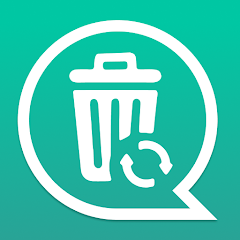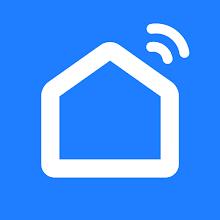Twilight: Blue light filter

Category:Health & Fitness Developer:Petr Nálevka (Urbandroid)
Size:18.5 MBRate:4.4
OS:Android 5.0+Updated:May 17,2025

 Download
Download  Application Description
Application Description
Are you struggling to fall asleep? Do your kids become hyperactive after playing with their tablet before bedtime? If you're using your smartphone or tablet in the evening or are sensitive to light during migraines, Twilight might be the solution you need!
Recent research indicates that exposure to blue light before sleep can disrupt your natural circadian rhythm, making it difficult to fall asleep. This is due to the photoreceptor in your eyes, Melanopsin, which is sensitive to blue light in the 460-480nm range. Such exposure can suppress Melatonin production, a hormone crucial for maintaining healthy sleep-wake cycles. Studies have shown that reading on a tablet or smartphone for a couple of hours before bed can delay sleep by about an hour.
The Twilight app adjusts your device's screen to the time of day, filtering out blue light after sunset and applying a soothing red filter to protect your eyes. The intensity of the filter smoothly adjusts according to your local sunset and sunrise times, ensuring a comfortable viewing experience.
Twilight is also compatible with Wear OS devices, enhancing its utility across your tech ecosystem.
Documentation
Learn more about Twilight at http://twilight.urbandroid.org/doc/.
Get More from Twilight
1) Bed Reading: Twilight offers a more eye-friendly experience for night reading, capable of dimming the screen beyond the usual backlight controls.
2) AMOLED Screens: Extensive testing on AMOLED screens over five years shows no signs of depletion or over-burning. Properly configured, Twilight emits less light and distributes it more evenly, potentially extending your screen's lifespan.
Basics on Circadian Rhythm and the Role of Melatonin
For further reading on circadian rhythms and Melatonin, visit:
- http://en.wikipedia.org/wiki/Melatonin
- http://en.wikipedia.org/wiki/Melanopsin
- http://en.wikipedia.org/wiki/Circadian_rhythms
- http://en.wikipedia.org/wiki/Circadian_rhythm_disorder
Permissions
Twilight requires the following permissions:
- Location - to determine your local sunset and sunrise times.
- Running Apps - to pause Twilight in selected applications.
- Write Settings - to adjust the screen's backlight.
- Network - to connect with smart lighting systems like Philips HUE, helping to filter blue light in your home environment.
Accessibility Service
To filter notifications and the lock screen, Twilight may request the use of its Accessibility Service. This service is used solely to enhance screen filtering and does not collect any personal information. For more details, visit https://twilight.urbandroid.org/is-twilights-accessibility-service-a-thread-to-my-privacy/.
Wear OS
Twilight syncs your Wear OS screen with your phone's filter settings, and you can control the filtering via a "Wear OS Tile".
Automation (Tasker or Other)
For automation options, check out https://sites.google.com/site/twilight4android/automation.
Related Scientific Research
Explore the scientific foundation behind Twilight's effectiveness:
- Amplitude Reduction and Phase Shifts of Melatonin, Cortisol and Other Circadian Rhythms after a Gradual Advance of Sleep and Light Exposure in Humans - Derk-Jan Dijk, & Co 2012
- Exposure to Room Light before Bedtime Suppresses Melatonin Onset and Shortens Melatonin Duration in Humans - Joshua J. Gooley, Kyle Chamberlain, Kurt A. Smith & Co, 2011
- Effect of Light on Human Circadian Physiology - Jeanne F. Duffy, Charles A. Czeisler 2009
- Efficacy of a single sequence of intermittent bright light pulses for delaying circadian phase in humans - Claude Gronfier, Kenneth P. Wright, & Co 2009
- Intrinsic period and light intensity determine the phase relationship between melatonin and sleep in humans - Kenneth P. Wright, Claude Gronfier & Co 2009
- The Impact of Sleep Timing and Bright Light Exposure on Attentional Impairment during Night Work - Nayantara Santhi & Co 2008
- Short-Wavelength Light Sensitivity of Circadian, Pupillary, and Visual Awareness in Humans Lacking an Outer Retina - Farhan H. Zaidi & Co, 2007
 Reviews
Post Comments+
Reviews
Post Comments+
 Latest Apps
MORE+
Latest Apps
MORE+
-
 VPNPrivate: Unlimited Free VPN
VPNPrivate: Unlimited Free VPN
Tools 丨 11.30M
 Download
Download
-
 iPaleo
iPaleo
Personalization 丨 37.10M
 Download
Download
-
 Jabra CONNECT
Jabra CONNECT
Lifestyle 丨 14.50M
 Download
Download
-
 ORIN - GPS Tracking and Automa
ORIN - GPS Tracking and Automa
Lifestyle 丨 17.80M
 Download
Download
-
 LatInc Professional Network
LatInc Professional Network
Communication 丨 11.60M
 Download
Download
-
 Auto RDM: Recover Messages
Auto RDM: Recover Messages
Communication 丨 21.49M
 Download
Download
 Similar recommendations
MORE+
Similar recommendations
MORE+
 Top News
MORE+
Top News
MORE+
 Topics
MORE+
Topics
MORE+
- Essential Media and Video Tools for Android Users
- Best Apps for Following Current Events
- Top Photography Apps for Beginners
- Best Beauty Apps for Makeup Tutorials
- Realistic Simulation Games Collection
- Addictive Offline Games You Can Play Without Internet
- Top Casual Games for Mobile
- Engaging Role Playing Experiences on Android
 Trending apps
MORE+
Trending apps
MORE+
-
1

Migraine Buddy: Track Headache68.57M
Discover Migraine Buddy: Track Headache: Your Ultimate Migraine CompanionJoin the 3.5 million migraine sufferers who trust Migraine Buddy: Track Headache, the app designed to help you understand and manage your migraines. Here's how Migraine Buddy: Track Headache can help you: Pinpoint Patterns: Quickly identify triggers and patterns in your mi
-
2

Обои для Стандофф 2 HD22.39M
Experience the adrenaline-pumping world of Standoff 2 like never before with "Wallpapers for Standoff 2." This must-have app is a treasure trove of vibrant and epic wallpapers that will transport you straight into the heart of the game. Whether you're a fan of popular characters, powerful weapons, t
-
3

Smart Life - Smart Living53.49M
The Smart Life app revolutionizes the way we control and manage our smart devices, bringing convenience and peace of mind to our everyday lives. This user-friendly app makes connecting and controlling a wide range of smart devices easier than ever before. Effortlessly set your devices to function ex
-
4

RealVNC Viewer: Remote Desktop6.5 MB
Access your computer from anywhere using RealVNC Viewer! This Android app transforms your phone into a remote desktop, providing seamless control of your Mac, Windows, and Linux machines. RealVNC Viewer lets you remotely view and control your computer's desktop, mouse, and keyboard as if you were s
-
5

Cuevana 8 Mod11.43M
Cuevana 8 Mod APK is a leading app in the world of streaming, offering a wide range of high-quality movies and series. This app, which originates from the renowned Cuevana website, has been providing top-notch content for over two decades. Cuevana 8 Mod APK is popular for its user-friendly interface
-
6

MotorSureVAGCar Diagnostics133.3 MB
MotorSure for VAG: Your All-in-One VAG Car Diagnostic App MotorSure for VAG is a comprehensive app tailored for owners of Volkswagen, Audi, Skoda, SEAT, Bentley, and Lamborghini vehicles. Paired with the MotorSure OBD tool, it provides professional-grade diagnostics, maintenance services, and easy





95.7 MB
Download69.6 MB
Download22.9 MB
Download55.8 MB
Download5.1 MB
Download38.0 MB
Download